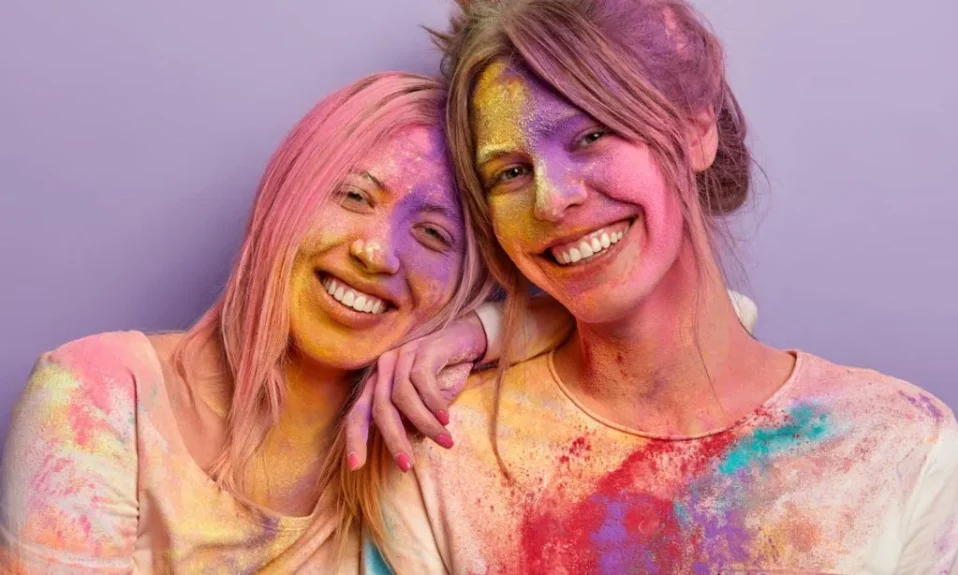Social media is one of the most popular methods of communication in our world. The Social Media Addiction survey was conducted by the American Psychiatric Association to find out how many people are addicted to social media and how they react when they’re addicted to social media.
The survey’s results showed that social media is more addictive than cigarettes, alcohol, and other drugs. On average people spend time on social media which is about 2 hours and 27 minutes a day. If a person spends 2 hours 27 minutes a day on social media they would miss out on 3 days of sleep in one month.
Is Social Media Addictive?
Social media has become an integral part of our daily lives and part of the reason it is so addictive is that it provides us with a sense of belonging. It confirms to us that we are not alone. How long can we go without social media before feeling anxious?
A study in the Journal of Social and Personal Relationships found that people who were more likely to turn to social media for emotional support experienced negative feelings such as sadness, hopelessness, and worthlessness after a one-week period without it.
Social media has its undeniable benefits, but it’s also been reported that technology can be addictive. The truth is, we all want to be connected and no one wants to feel isolated. It’s in every human’s nature to want to connect with other people. But how much is too much?
In order to help people cut down on the time spent on social media, some experts suggest limiting your use of the platforms and focusing more on deep relationships instead of just superficial chats that you can find online.
Social media is something that I have controlled because of my addiction to it. It’s not an easy thing and getting out was one of the hardest steps in my life. But I knew that it wasn’t worth the time and energy that was being wasted on this.
Here’s the 2022 report showing the number of users in millions using social media platforms.
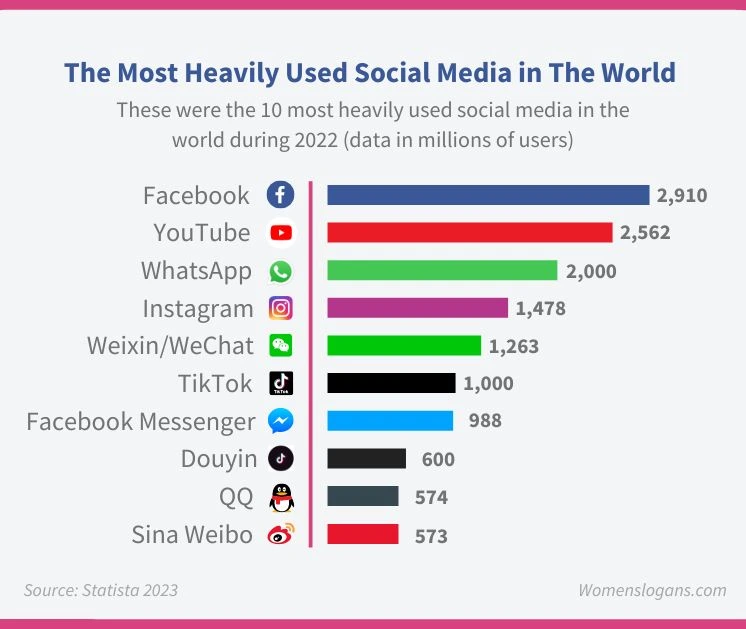
Causes of Social Media Addiction
The main root causes of social media addiction are personal dissatisfaction, low self-importance, depression, and even lack of affection, a shortcoming that teens often try to replace with famous likes.
Social Media has been a part of daily lives for most people. With the increasing amount of content on social media platforms, people feel like they’re missing out on something. They start to feel brain-dead and feel like they can’t go without their phone that much longer.
With only a few taps or clicks, they can be immersed in another world full of entertainment and new content that is constantly being created by other users. As more people spend more time engaging with these platforms, it has become hard for them to disconnect from social media addiction.
Some notable causes of social media addictions are the addictive effects of dopamine, lack of face-to-face interaction, and an overall increase in the time spent in front of screens as well as communication devices.
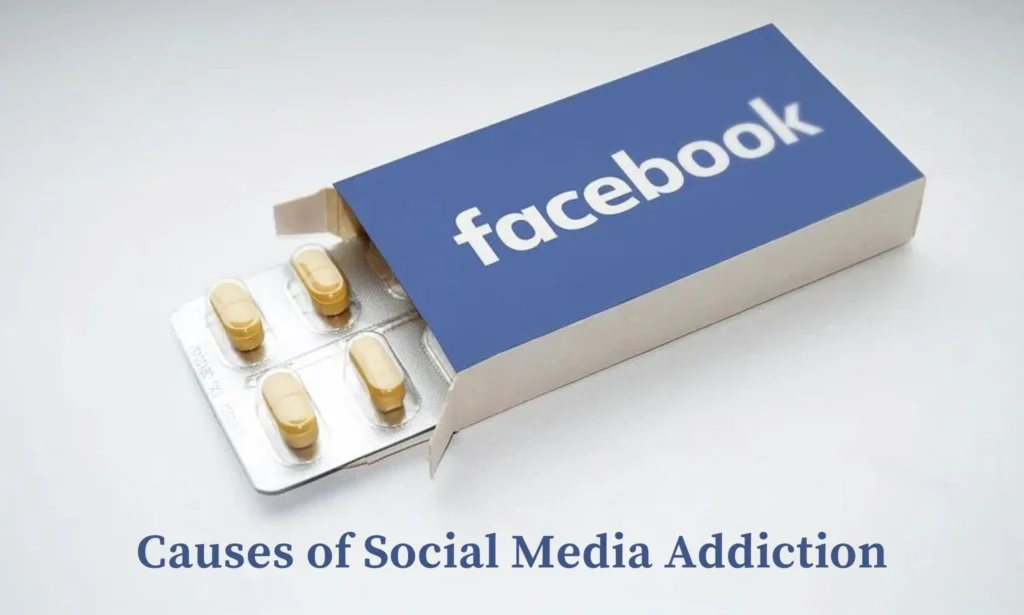
- The addictive effects of dopamine are the most significant cause. Dopamine is a neurotransmitter that activates when something pleasurable happens to the brain. The more frequent and rewarding we become to social media platforms, the more our brains release this neurotransmitter and make us feel good.
- A lack of face-to-face interaction is also a major cause of social media addiction. Without human contact, many people lack the motivation to stay away from smartphones and social media platforms.
- It has been said that we are more addicted to our phones than to anything else we own. A new study published by the University of Pennsylvania’s Annenberg School for Communication and Journalism found that Instagram users check their phones 23 times per day on average. This means nearly half of our waking hours this day are spent engaging with society through screens.
Effects of Social Media Addiction
The effects of social media are not always negative but can vary from person to person. While some people say that social media is beneficial and helpful, others argue against this, claiming that it’s just a waste of time.
Some people argue that social media, for them, has been a blessing and not a bad thing. They claim that it has taken them out of their mundane lives, distracting them from their problems and reminding them about all the good things in life.
Social media addiction is an issue that has recently gained popularity more than ever before. It’s been proven that excessive use of social media can have negative effects on our mental health.
The terms Social Media addiction, Social media overuse, digital addiction, and Net Addiction are used interchangeably to describe the phenomenon of excessive use of social media leading to adverse consequences that include increased anxiety levels, problematic relationships, depression, and anorexia as well as other long-term effects on physical health.
It should be mentioned that the term “social media” refers to all websites which provide users with a platform for communication via text, images, or videos. It is not restricted to just Instagram, Facebook, or Twitter alone.
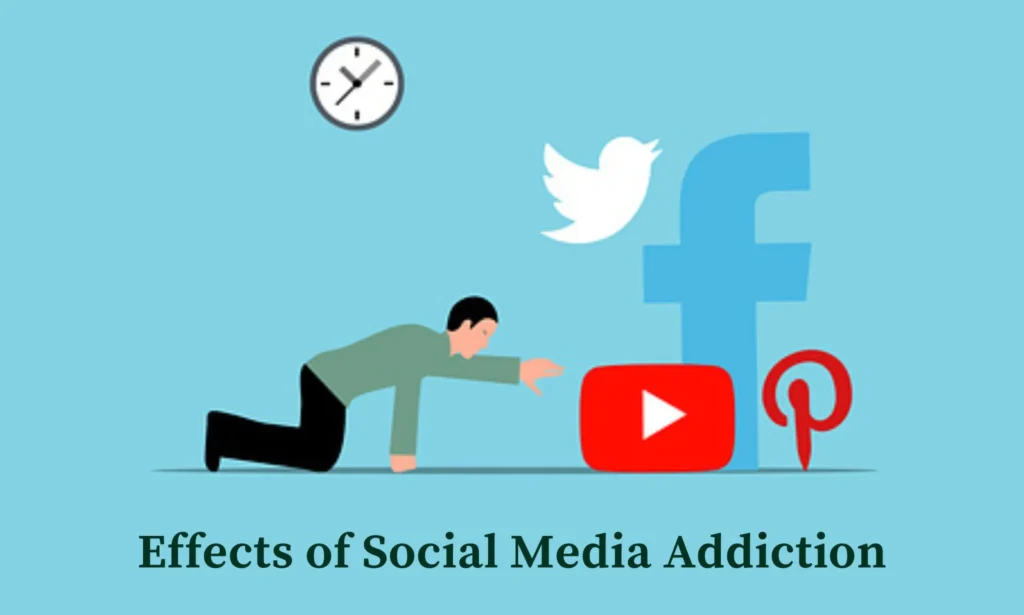
Signs of Social Media Addiction
The following are some of the signs and symptoms of social media addiction in teens:
- Loss in offline face-to-face interactions.
- Lack of time management skills.
- Poor sleep quality.
- Feeling inadequate without social media usage.
- Feeling angry, restless, isolated.
- Compulsive checking of social media and posting new content.
- Using social media as an escape from reality.
- Feeling anxious if your social media breaks or WiFi is interrupted.
- Feeling stuck in a different reality, constantly comparing your real life with the seemingly perfect life on social media.
- Inability to stop using social media even when it prevents you from fulfilling important responsibilities.
- Difficulty in performing tasks such as homework or chores.
- Obsessive thoughts about when social media will be available again.
- Obsession with the next “like” or “heart”.
- Lying to friends and family about how much time you spend on social media.
- Feeling like a “jerk” or as if you are talking to robots due to a lack of emotions on social media.
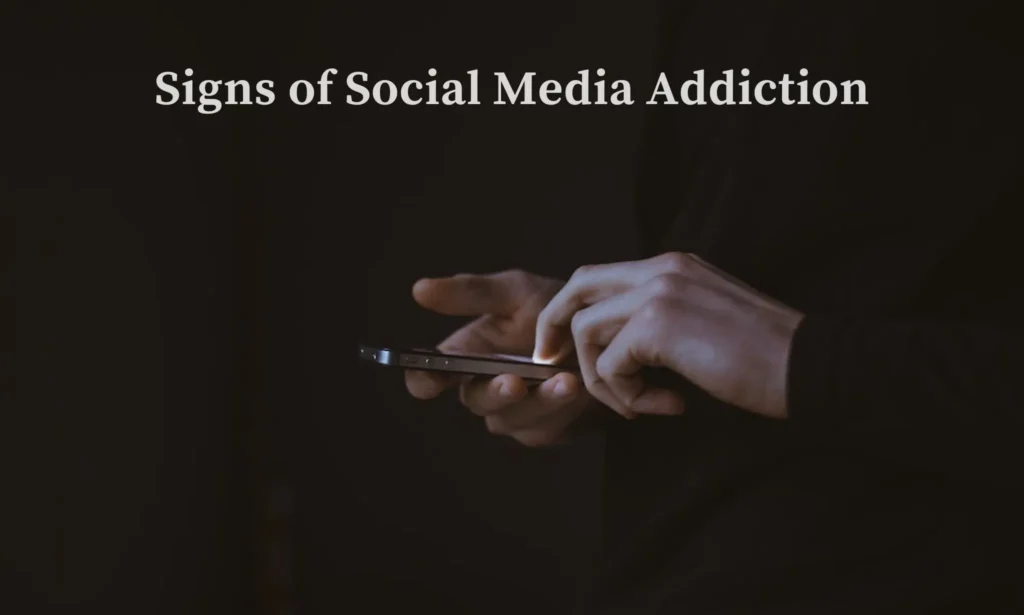
How to Get rid of Social Media Addiction
If you experience anxiety or worry while using social media, there are a few things that you can do to decrease your use of social media.
- Turn off your personal phone during work.
- Turn off notifications on social media so you can avoid distractions.
- Leave your phone/tablet/smartphone out of your bedroom.
- Blocking off specific hours during the day that you will avoid using social media.
- Limit yourself to one social media platform each day.
- Use apps like Moment to block out your time online so that you are not constantly checking social media while working on other things.
- Block certain apps on your phone such as Facebook or Twitter on a certain day of the week so that you will only check them on the designated days.
- Create a schedule for your social media usage and block out time on your work calendar when you are not supposed to use social media.
- Tell people close to you that you will be unavailable for a certain amount of time during the day and ask that they respect those boundaries.
- If it is necessary, disconnect from the internet altogether while doing something else so that you can focus on a real-life interaction.
You can also read Happy Valentine’s Day Quotes.
Video: Social Media Addiction
FAQs: Social Media Addiction
Social media is addictive because it is a dopamine-based reward system. The more you get likes, the more you want to post and the more likes you want to get. Likes are the social currency on social media.
There are some signs that can point to the possibility of addiction. These include:
– Constantly checking social media feeds, even when it’s not for work or school-related purposes.
– Spending more than two hours on social media a day.
– Using social media as a way to escape from other problems in life.
– Becoming anxious or irritable when you don’t have access to your phone or tablet.
The root cause of social media addiction is the constant need to be validated and the desire to be accepted. People are constantly looking for an external source of validation that they can’t find in themselves.
If you’re trying to cut back, start with one hour for every day that you spend on Facebook, Instagram, and Twitter. Gradually increase the amount of time you spend on each platform by a few minutes each day until you reach the desired goal.
Data shows that Teens who are spending up to 9 hours a day can be addicted to social media and those who are spending more than 5 hours are more likely to suffer from depression.
Final Words
Social Media has been a part of our life for quite some time now. We have to admit that there are a lot of benefits that come along with it including reach, engagement, and brand building.
However, it has also been proven to trigger addictive behavior in some people and even lead to physical illnesses – some social media users are so addicted that they end up sleeping less than 6 hours a day.
Many experts believe that addiction can be avoided by modifying the settings on their phones or eliminating social media altogether.
Should you want to know more? get in touch with our experts and subscribe to Women Slogans for the weekly newsletter. We’ll take it from there.
Now I’d like to hear from you:
Do you have any experience or questions regarding “Social Media Addiction?” Either way, please dive in and leave a comment below.



